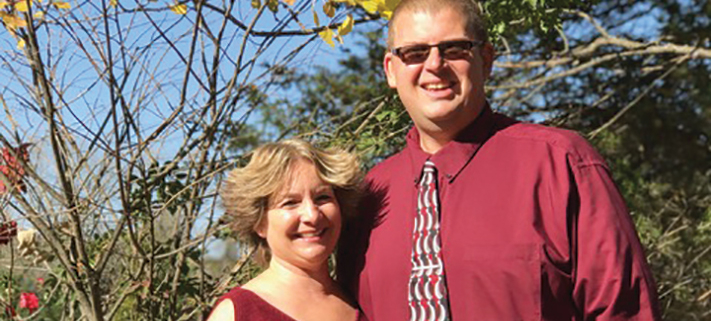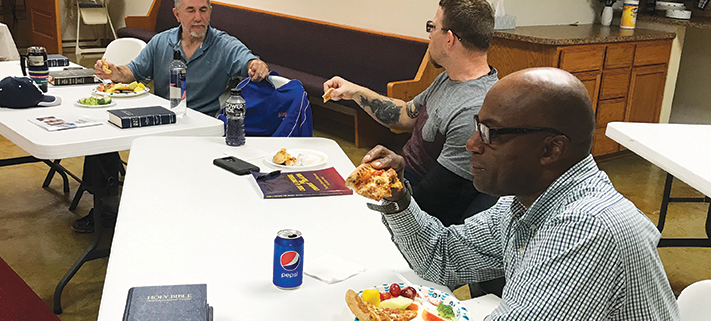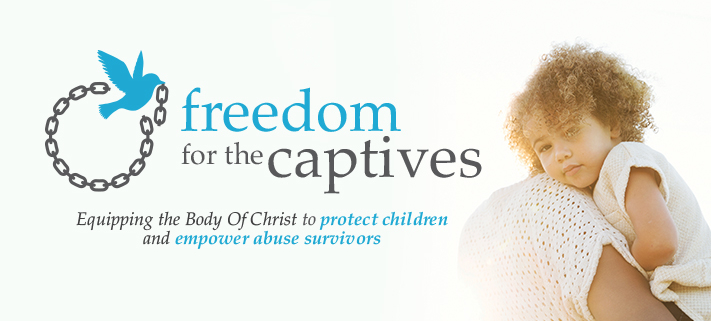Compassion ministry seeks to include everyone
God made each of us with different strengths and weaknesses. But people with disabilities often find that others decide for them how they can and cannot participate in church life, even though they have as much interest in the work of the church as those who are fully abled. If we fail to include and accommodate people, both the church and the excluded person suffer. Consider the following tips about working together in the kingdom.
Don’t assume what someone can or cannot do
On first meeting someone, you don’t know what they can understand or do. Some people may struggle to express themselves, yet can understand your communication without difficulty. People who use wheelchairs may have above-average intelligence. People who are blind are not necessarily hard of hearing. Get to know that individual rather than make assumptions.
Put the person first
Our primary identity is as redeemed children of God, not blind, deaf, crippled, etc. Person-first language makes the person, not the disability, the subject. If the disability isn’t relevant, don’t mention it. If it is relevant, put the person first (e.g. “a person who uses a wheelchair” rather than “a handicapped person”). Fear stems from ignorance, so take a few minutes to learn from the person with a disability, rather than avoid them. A simple conversation can eliminate fear and foster a relationship in love.
Build a social ramp, not just a wheelchair ramp
Making the first friend is the hardest. Train individuals in your congregation to reach out and be that first friend to someone with a disability. Have them introduce other members to the newcomer, and model how to communicate with the person who has a disability. Consider how you can be a “social ramp” for someone who longs for friendship yet has a difficult time with social interactions.
Address barriers to seeing and hearing
Large-print bulletins and hymnals work well in traditional worship settings. Some churches now use tablet computers to display worship slides in a user-friendly manner and allow those with disabilities to follow song lyrics, sermon notes, liturgy, and even announcements.
A hearing loop linked to the church audio system can dramatically improve a person’s ability to hear. Sign-language interpreters can be employed locally or through online services.
“Let the little children come to me”
Children with disabilities often leave the church, along with their families, when a frustrated Sunday school teacher says, “I’m sorry—I just can’t do this anymore!” Give your teachers and youth leaders the resources they need to keep their classrooms welcoming for all students. Adding a second teacher to a classroom can make a world of difference.
Consider the whole family
Family members of persons with a disability face many extra stressors. Offering respite care for date nights, weekend getaways, or running errands shows sensitivity and love for the whole family.
Ask and listen
The best teaching resource we have may be the person in front of us. Ask questions like “What would you like to try doing that you haven’t been able to explore yet?” Then be prepared to follow through!
Helping more people than you first thought
Consider how “universal design” concepts can help you reach people in your community. Not everyone learns best by listening to a spoken message, and the same tools that can help a person with an intellectual disability participate more fully in worship may benefit others, such as people learning English as a second language.
Everybody belongs
Some people make involuntary noises or movements that others find distracting in worship. Church leaders can model an attitude that makes everyone feel welcome and comfortable. Many people with disabilities have meaningful contact only with family and paid caregivers. Rarely do they have opportunity to form lasting friendships. Could your small group ministry include people with disabilities?
Everybody wants to serve
All people can contribute actively with their gifts. Be intentional about asking what people with disabilities would like to offer, and be careful not to decide for someone what they cannot do. The person with disabilities, like any person, will know best their own abilities.
Larry Povinelli is a disability rights attorney. He worships at Lamb of God, an inclusive congregation in Madison, Ala.
For more resources on including people with disabilities, e-mail [email protected] or call 414-256-3241.
SPECIAL MINISTRIES
Learn about the ministry work of WELS Special Ministries.
SUPPORT SPECIAL MINISTRIES
Support the ministry work of WELS Special Ministries.







